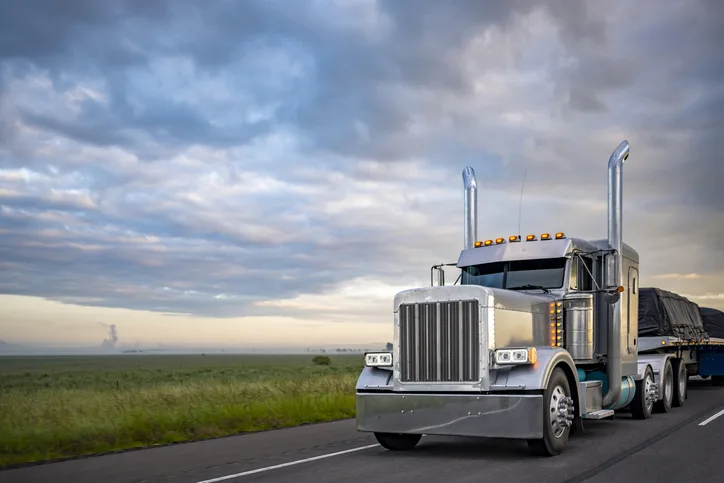
Undefeated Texas 18-Wheeler Accident Lawyers
Putting inexperienced truck drivers behind the wheel of an 18-wheeler or other big rig has long been associated with an increased risk of fatal accidents, but recent crash data suggests the problem is only getting worse.
Inexperienced Truck Drivers Twice as Likely to Crash
According to a new study based on data compiled by the Federal Motor Carrier Safety Administration (FMCSA), the percentage of fatal crashes involving newly licensed commercial drivers has increased significantly since 2017, from 4.6 percent to 7.4 percent in 2022.
Fatal accidents involving inexperienced truckers killed 494 people that year alone.
The data, which was presented at a recent FMCSA safety research forum, also showed that inexperienced truck drivers operating within 24 months of graduating from the agency’s New Entrant Safety Assurance Program —which requires that they pass a safety audit—still had twice as many total crashes compared to their more seasoned counterparts.
Inadequate Truck Driver Training Standards
Unfortunately, this alarming trend is unlikely to ease anytime soon.
While an ongoing shortage of commercial drivers has forced trucking companies to increasingly hire younger and less experienced drivers, federal training standards for truckers and other commercial drivers haven’t been updated in more than 30 years.
Inexperienced truckers need only pass a medical exam, a multiple-choice written exam, and a brief driving test to operate across state lines. In some states, the school a prospective trucker paid to attend can even administer the driving test. There’s also no minimum requirement for behind-the-wheel driving time, and there’s no requirement that these inexperienced truck drivers demonstrate an ability to maneuver a rig through snow, rain, or other less-than-optimal conditions.
To make matters even worse, in just a few months, a new pilot program will take effect that will lower the minimum age to obtain the Commercial Driver’s License (CDL) required for interstate driving from 21 to 18.
FMCSA Proposed Training Rule Falls Short
In 2012, the U.S. Congress mandated that the FMCSA establish a written proficiency exam that new interstate commercial drivers must pass before registering with the U.S. Department of Transportation. The deadline for establishing the requirement expired in April 2014 without action by the regulator. Ten years later, the FMCSA has yet to do so. While the proposed rulemaking will supposedly begin in July with publication in the Federal Register, that’s subject to change and could still be delayed.
In February, the FMCSA did announce a proposed rule that would, among other things, create a training provider registry and require prospective truck drivers to sign up with a school on the registry. However, the proposal would allow those training schools to self-certify, and it lacks any requirement for a minimum number of hours of behind-the-wheel training.
“That is some of the most invaluable experience that a new truck driver learns—sitting behind the wheel with someone who is an experienced driver saying, ‘This is about to happen. This is how you avoid this critical safety situation,’” Peter Kurdock, general counsel for the Advocates for Highway and Auto Safety, recently told Time. “We feel it’s a significant failing of the rule.”
Safety Tips for Avoiding Truck and 18-Wheeler Crashes
Fatal truck and 18-wheeler accidents are increasing at a record pace.
In fact, in 2022 alone, a staggering 5,936 people, including truck drivers, died in trucking-related crashes – a 2 percent increase compared to 2021 and a 75 percent jump since 2009. Based on this latest data, inexperienced truck drivers undoubtedly contribute to the growing danger along the nation’s roads and highways.
While it’s not always possible to avoid a collision with a large truck, motorists need to be aware of these risks and take steps to stay safe on the road. Some precautions to keep top-of-mind include:
- Stay Out of Blind Spots: If you can’t see the truck driver in their mirror, they can’t see you. The areas directly behind and beside a truck are known as “No-Zones,” where a trucker can’t see you. Avoid them.
- Maintain a Safe Distance: A good rule is to stay one car length behind the truck for every 10 mph.
- Avoid Cutting Off Trucks: Trucks need more time to stop. Never cut off a big rig; give plenty of space when merging in front.
- Signal Early: Use turn signals well in advance, especially when merging or changing lanes, to give truck drivers time to react.
- Pass Safely: Pass trucks on the left at a consistent speed, and ensure you see the entire truck in your rearview mirror before merging back.
- Never Tailgate. Tailgating is always unsafe, but it’s especially dangerous when you’re following closely behind a big rig
- Watch for Wide Turns: Trucks need extra space when turning right. Never attempt to squeeze by on the right.
- Watch Out for Truck Tire Debris: 18-wheelers and other big rigs are prone to tire blowouts. Slow down and maneuver cautiously around tire debris on the road.
Undefeated Texas 18-Wheeler Accident Lawyers: Call 1-888-603-3636 for a Free Consult
Our Undefeated Texas Truck Accident Lawyers have won Billions for our clients and are known for recovering record-breaking verdicts and settlements for the victims of reckless, impaired, and inexperienced truck drivers in Texas and throughout the United States.
If you or a loved one were hurt in a truck or 18-wheeler crash, please call 1-888-603-3636 or Click Here to send us a confidential email via our “Contact Us” form.
Your consultation is free, and because we work on a contingency fee, you won’t owe us anything unless we win your case.